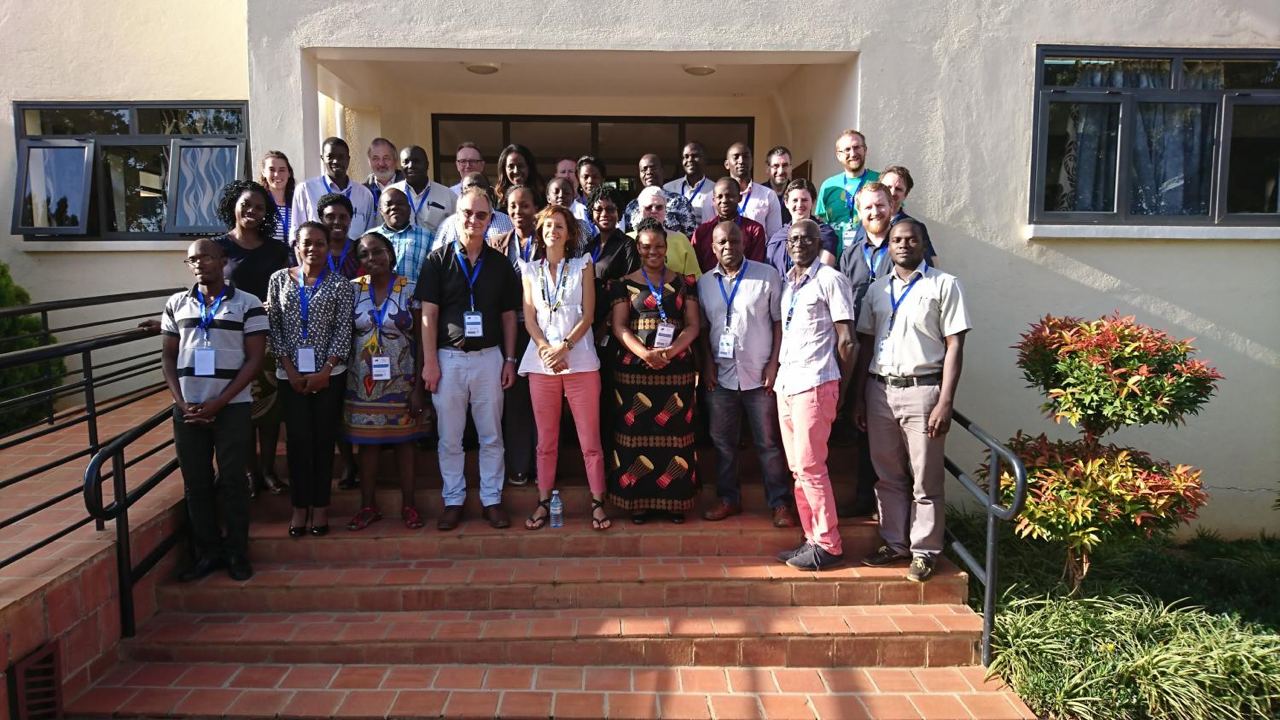WACCBIP Joins Forces with The Francis Crick Institute and LifeArc to Empower African Scientists

For Immediate Release
The West African Centre for Cell Biology of Infectious Pathogens (WACCBIP), based at the University of Ghana, is glad to announce a new phase of the Crick Africa Network (CAN) initiative. Through a new partnership with LifeArc, a leading self-funded charitable medical research organization, the second phase of CAN (CAN II) will invest an additional £7.5 million into providing new Career Accelerator Fellowships to early career African scientists. These fellowships will empower researchers to undertake world-class research, while advancing their careers and building critical partnerships with scientists at the Crick Institute.
Jean Langhorne, Director of the Crick African Network said: “Low- and middle-income countries face the biggest threats from infectious disease, climate change and related health impacts. However, their scientists, who are best placed to pose and answer the right research questions, often lack the resources and connections. We are committed to redressing this imbalance and creating equitable partnerships with scientists in Africa.”
“We’ve already seen incredible success from our previous fellows who are establishing themselves as science leaders, growing scientific and training capacity in Africa, and contributing to global biomedical research. We’re delighted to develop CAN further and partner with LifeArc who will bring their expertise and financial support to the network”, she further stated.
Under this collaborative umbrella, WACCBIP joins four other distinguished African partner institutions, including Stellenbosch University and University of Cape Town in South Africa, MRC Unit The Gambia at LSHTM, and MRC/UVRI at LSHTM Uganda Research Unit. This alliance not only provides funding for CAN Fellows but also opens doors to state-of-the-art research facilities, including those at The Crick and LifeArc's cutting-edge Stevenage and Edinburgh facilities. These fellows will receive comprehensive mentorship spanning grant writing, research ethics, translational science, and commercialization from LifeArc's Academic Engagement team.
The collaboration also heralds the introduction of Technology Development Fellows, a novel one-year training opportunity for African-based scientists. This initiative focuses on enhancing expertise in managing and developing science and technology platforms, crucial for providing technical research support.
LifeArc, recognized for its commitment to bridging the gap between academic research and clinical development, brings a unique translational focus to CAN. Dr. Mike Strange, Head of Global Health at LifeArc, stated, “LifeArc is committed to investing over £100 million in global health, with a focus on infectious diseases, over the coming years. We are delighted that our first announcement as part of this, is our support of the Crick Africa Network. Our aim is to focus our efforts where patient need is greatest and where we can make a valuable contribution. Pursuing collaborative partnerships
like this, that drive innovation and help create a more equitable and sustainable global health research ecosystem, is core to what we are trying to achieve. We look forward to working with the Fellows as they build their careers.”
WACCBIP and CAN II partners are excited about the potential transformative impact of this partnership, which will promote a new era of African scientific leadership and catalyze research breakthroughs that address pressing health challenges.
Details about how to apply for CAN II fellowships can be found here
CAN Successes
Since CAN was established in 2017, 18 Fellows have progressed through the unique programme, building their own careers and furthering their research in infectious diseases.
Achievements from the first cohort include:
· 82 academic publications published.
· Over £11.6 million secured in grant funding.
· 97 students supervised, building training capacity for the next generation of African scientists.
Peter Quashie, a former CAN Fellow, is now the Deputy Director responsible for research at WACCBIP, University of Ghana. He said: "The leadership training that I benefited from early on in my CAN Fellowship was instrumental in helping me plan my career, supervise students and staff, and apply for grants.”
“By allowing flexibility to pursue COVID-19 research when other research had stalled, CAN allowed me to shine and become known as a scientist of repute, beyond HIV. As a result, I drove a lot of centre-level COVID-19 projects and helped obtain over $3 million in funding for WACCBIP.", he added.
About WACCBIP
The West African Centre for Cell Biology of Infectious Pathogens (WACCBIP) is a pioneering research institution based at the University of Ghana. Committed to unravelling the complexities of infectious diseases through innovative research, WACCBIP serves as a beacon of scientific excellence, driving advancements in biomedical understanding.
About The Francis Crick Institute
The Francis Crick Institute is a world-renowned biomedical research centre dedicated to understanding the fundamental mechanisms underlying health and disease. With a global outlook and collaborative spirit, The Crick fosters partnerships that accelerate scientific progress and empower researchers to make lasting contributions to human health.
About LifeArc
LifeArc is a self-funded charitable medical research organization that bridges the gap between academic research and clinical development. Through strategic investments, expert advice, and collaborative partnerships, LifeArc transforms groundbreaking discoveries into real-world solutions, ultimately improving patient lives worldwide.
For media inquiries and further information, please contact: